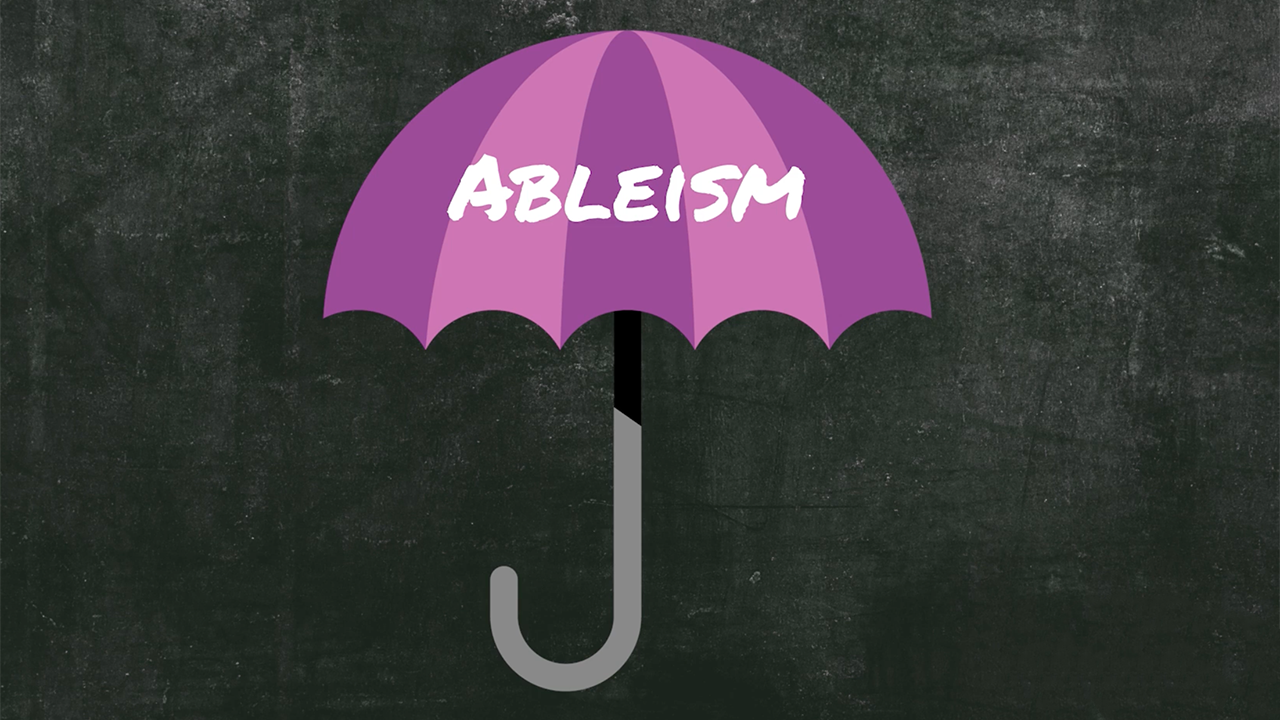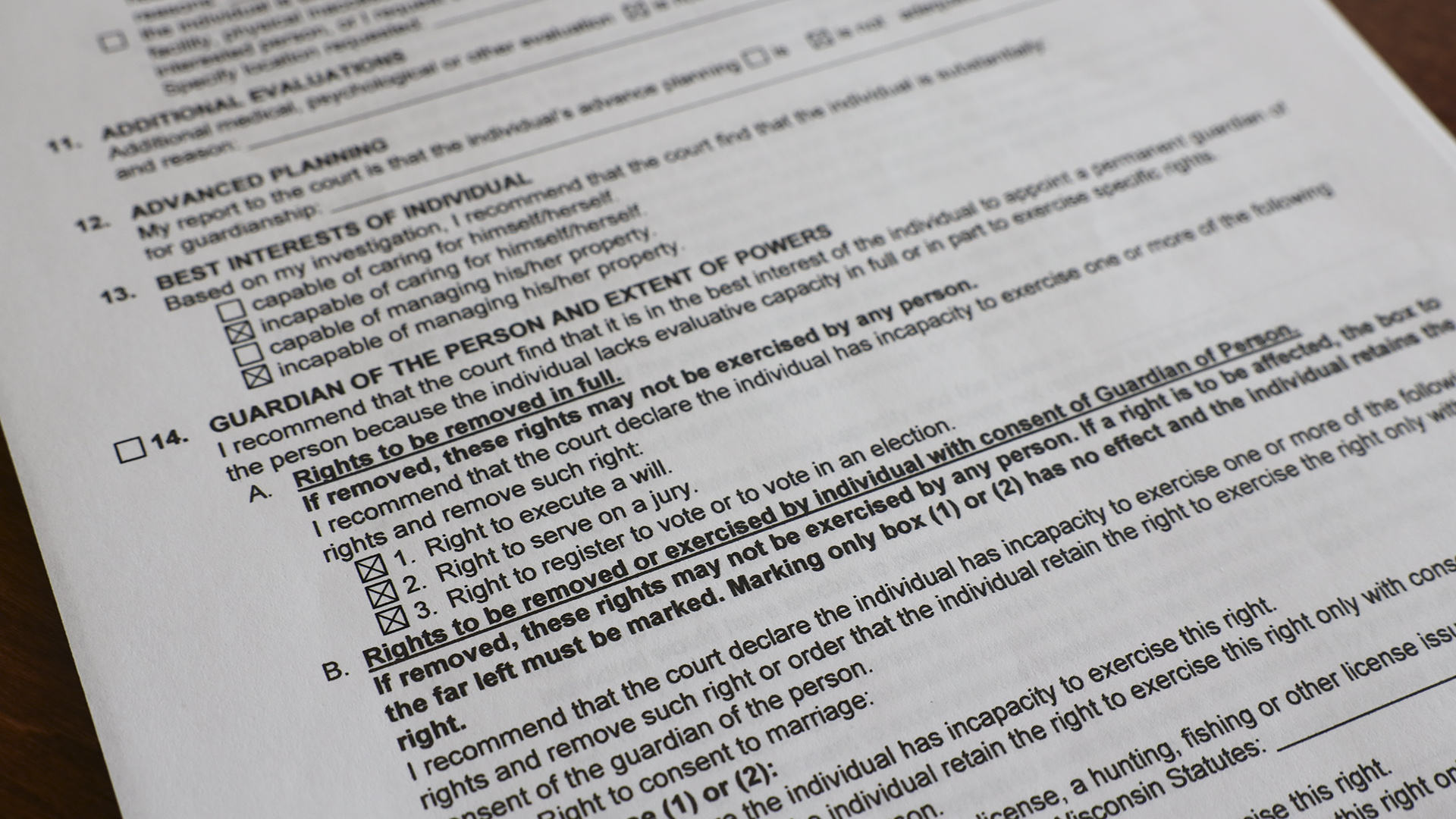July is designated Disability Pride Month in the United States, in recognition of the passage of the landmark Americans with Disabilities Act (ADA) on July 26, 1990, and honoring the long legacy of work and ongoing advocacy by the disability community to fight for civil rights and visibility.
An estimated 1 billion people worldwide live with diverse disabilities. According to the American Community Survey of the U.S. Census Bureau, in 2022 the U.S. disabled population was estimated at 44.1 million or 13.4 percent of Americans.
As part of our Voices project, PBS Wisconsin has launched a new collection of resources to honor Disability Pride and to serve as a tool to engage daily in building an anti-ableist society.
The top of the collection features the Disability Pride flag, first designed in 2019 by writer Ann Magill, who has cerebral palsey, and revised in 2021. The flag reminds us to consider the broad range of disability. The color red stands for physical disabilities, gold for neurodiversity, and white representing invisible disabilities and those not yet diagnosed. Blue encompasses emotional and psychiatric disabilities like anxiety, depression, and the broad scope of mental illness; and green refers to sensory disabilities like deafness, blindness, and audio processing disorder. The charcoal background mourns and commemorates disabled people lost to violence, negligence, suicide, rebellion, illness and eugenics.
The scope of PBS Wisconsin resources in the Voices collection includes our full range of programming — independent films from POV and the PBS Short Film Festival, reporting from the News Hour and local PBS Wisconsin News, Made in Wisconsin shows like Wisconsin Life and University Place, and our classroom resources from PBS Wisconsin Education and PBS LearningMedia.
Explore these highlights and visit the full collection to honor Disability Pride.
Resisting a culture of “ableism” with PBS Wisconsin Education’s aka Teacher
 A culture of “ableism” persists across our societies. “Ableism,” simply defined, is discrimination against disabled people. A structurally ableist society sees this discrimination reproduced in our institutions, laws, culture, and in our physical and social architecture. This episode from PBS Wisconsin’s aka Teacher is a resource for learning how we can achieve school classrooms free of ableism.
A culture of “ableism” persists across our societies. “Ableism,” simply defined, is discrimination against disabled people. A structurally ableist society sees this discrimination reproduced in our institutions, laws, culture, and in our physical and social architecture. This episode from PBS Wisconsin’s aka Teacher is a resource for learning how we can achieve school classrooms free of ableism.
For even more classroom learning resources, visit PBS LearningMedia’s Move to Include, a multi-platform public media initiative designed to promote inclusion for people with disabilities.
New from POV: Is There Anybody Out There
New from POV this July comes
Is There Anybody Out There? from filmmaker Ella Glendining. In her 20s with a rare physical disability, Glendining embarks on a journey to meet others who share her experience — and the caregivers who love them — in an exploration of selfhood and identity in an ableist world.
Take Me Home from the 2024 PBS Short Film Festival
The
2024 PBS Short Film Festival launched on July 15th, and in its lineup this year is
Take Me Home from filmmaker Liz Sargent which follows a young woman with intellectual disabilities and her estranged sister as they confront their mother’s death and learn to communicate.
PBS News Hour remembers a hero of disability rights: Judy Heumann
Achieving an anti-ableist society implores us to actively learn about the history of disability and disability rights.
Judy Heumann (1947-2023) is just one of many luminaries of disability rights advocacy. Often referred to as the “Mother of the Disability Rights Movement,” she was an internationally recognized civil rights advocate crucial to the passing and implementation of a range of major legislation including the Americans with Disabilities Act of 1990. Educators can use this
U.S. History Collection from PBS LearningMedia for further resources to introduce students to Heumann in the classroom.
Reporting on disability from PBS Wisconsin News

With its strength covering state politics, the courts, and social issues, PBS Wisconsin News reports on how these effect the lives of Wisconsinites living with disabilities. Amid this and prior election seasons, the News team and its local and national partners have covered the intersection of disability and voting rights and regulations in our state. Recent reporting from partners at Wisconsin Watch and the Associated Press (AP) covers a Wisconsin legal suit addressing whether voters with disabilities can obtain specific absentee voting accommodations. Read:
- Wisconsin Republican lawmakers appeal ruling allowing disabled people to obtain ballots electronically, from partners at the AP, June 30, 2024
- Dane County judge allows disabled voters in Wisconsin to cast ballots from home, from partners at the AP, June 25, 2024
- Kaul argues against allowing disabled Wisconsin voters to cast ballots electronically from home, from partners at the AP, June 24, 2024
- Wisconsin voters with disabilities demand a better way to cast absentee ballots, from partners at Wisconsin Watch, April 23, 2024
- People with disabilities sue in Wisconsin over lack of electronic absentee ballots, from partners at the AP, April 17, 2024
How can theatre be more inclusive?
Ableism has impoverished our theater arts with a lack of representation of disabled actors, directors, set designers and producers.
This 2019 episode of PBS Wisconsin’s
University Place explores how theater can be more inclusive to those with disabilities. In July of 2022, PBS’s
Great Performances recorded the New York Public Theater’s Shakespeare in the Park production of
Richard III (watch with Passport) with a
spotlight on the efforts the production team made to prioritize inclusion. Also in 2022, the News Hour covered how a deaf cast acting in the Olney Theatre Center in Maryland
challenged theater norms in production of the Broadway classic, “The Music Man.”
 Passport
Passport







What do you think?
I would love to get your thoughts, suggestions, and questions in the comments below. Thanks for sharing!
Sigrid Peterson
The author has turned off comments for this article.